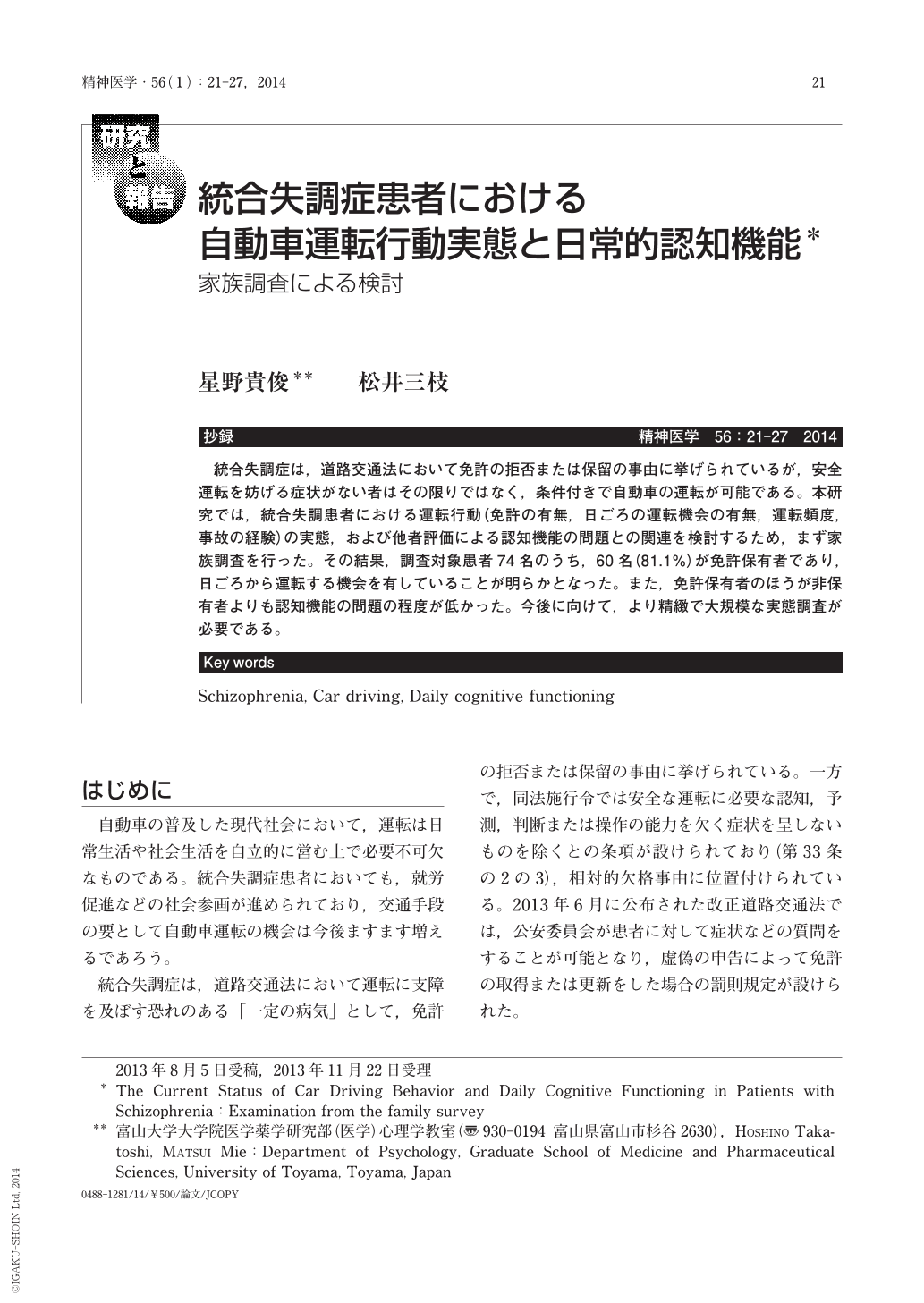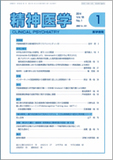Japanese
English
- 有料閲覧
- Abstract 文献概要
- 1ページ目 Look Inside
- 参考文献 Reference
抄録
統合失調症は,道路交通法において免許の拒否または保留の事由に挙げられているが,安全運転を妨げる症状がない者はその限りではなく,条件付きで自動車の運転が可能である。本研究では,統合失調患者における運転行動(免許の有無,日ごろの運転機会の有無,運転頻度,事故の経験)の実態,および他者評価による認知機能の問題との関連を検討するため,まず家族調査を行った。その結果,調査対象患者74名のうち,60名(81.1%)が免許保有者であり,日ごろから運転する機会を有していることが明らかとなった。また,免許保有者のほうが非保有者よりも認知機能の問題の程度が低かった。今後に向けて,より精緻で大規模な実態調査が必要である。
Patients with schizophrenia could be restricted to get or renew a driver's license by the provision of Road Traffic Act. Meanwhile, one could be free from such restrictions according to the absence of the symptoms impeding safe driving. The aim of this study was to examine the current status of car driving behavior and its correlation to daily cognitive functioning in patients with schizophrenia. Results showed that over 80 percent of patients in this research have driver's license and many of them drive a car depending on the occasions. Patients with a driver's license were evaluated more functional in daily cognition than patients without it by the family members. This study highlights the prevalence of car driver and the possible correlation between driving behavior and daily cognitive functioning in patients with schizophrenia. More elaborated and large-scaled survey is required for further clarifying the current status of car drivers in patients with mental illness including schizophrenia.

Copyright © 2014, Igaku-Shoin Ltd. All rights reserved.


